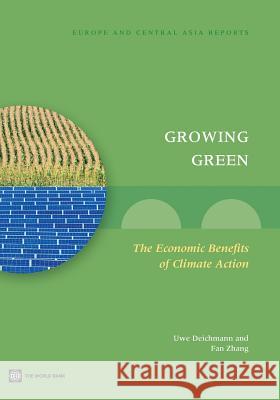Growing Green: The Economic Benefits of Climate Action » książka
Growing Green: The Economic Benefits of Climate Action
ISBN-13: 9780821397916 / Angielski / Miękka / 2013 / 454 str.
The causes of global warming and its consequences are clear, and the economic impacts of climate change are apparent. Climate change threatens development gains. Extreme weather events have brought severe droughts to Central Asia, heat waves and forest fires to the Russian Federation, and floods to Southeastern Europe. Unchecked emissions will result in rising economic costs and increasing risks to individuals. There is a clear case for all of the world's economies to move to a low-carbon growth path. Yet climate action has been inadequate, especially in the Europe and Central Asia (ECA) region. With prospects of a global climate agreement uncertain, Growing Green: The Economic Benefits of Climate Action identifies the actions that governments in the region can take to reduce the carbon footprints of their economies. Many of these actions will more than pay for themselves, and quickly-especially when indirect benefits such as better health and increased competitiveness are considered. To realize these benefits, policy makers in ECA need to move quickly on three sets of priorities: use energy much more efficiently; gradually move to cleaner energy sources; and increase carbon capture in soils and forests. These actions will require transformations in power generation, industrial production, mobility, city living, and farming and forestry. Policy makers are justifiably worried that climate action may jeopardize economic performance and strain the budgets of poorer families. Growing Green: The Economic Benefits of Climate Action shows how well-designed growth and social policies can make climate action growth-enhancing while protecting the living standards of less well-off households. The ECA region has been a bystander on climate action, and sluggish in realizing the benefits of the economic and technological innovations available to combat climate change. Growing Green: The Economic Benefits of Climate Action aims to help ECA become a leader in confronting this challenge. In doing so, it shows how countries in the region can make climate action-along with economic growth and social inclusion-the third pillar of their development strategies. Growing Green: The Economic Benefits of Climate Action is a part of a series of three regional reports that includes Balancing Act: Cutting Energy Subsidies While Protecting Affordability and Energy Efficiency: Lessons Learned from Success Stories. These reports will be of interest to policy makers, government officials in finance and line ministries, nongovernmental organizations, and development practitioners.











